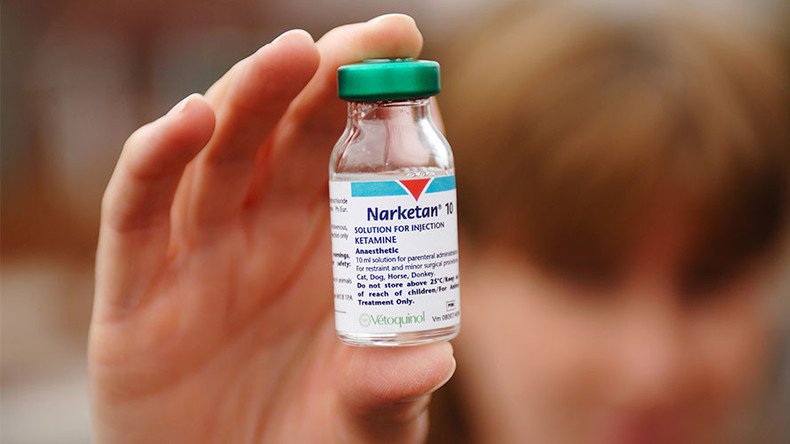Dark horse in fight against depression as ketamine trials show early promise

Doctors are calling for the illegal party drug ketamine to be taken seriously in treating depression. The sedative, intended for use on large animals, generated positive results in trials on patients with severe depression in the UK.
Scientists from Oxford University trialled ketamine on 101 patients who failed to find success with depression treatments since 2011. 42 of the patients saw positive results from the drug, Dr. Rupert McShane, who led the trial, wrote in The Lancet Psychiatrist.
Half of antidepressant prescriptions given to people who don't have depression – study https://t.co/TNF4Bc32kvpic.twitter.com/6C9ncgVOBF
— RT (@RT_com) May 24, 2016
Patients trialled were administered intravenous infusions of ketamine, followed by oral top-ups. “We’d like to see some more centers developing expertise and starting to use it,” Dr. McShane was quoted as saying in the Independent.
One patient described how the drug slowed down the, “constant, overwhelming bombardment of negative intrusive thoughts surging through your brain,” and allowed her to, “fight back.”
Another said that they did not feel addicted to ketamine after the treatment, claiming her standard antidepressants had more side-effects during withdrawal.
The doctors behind the research claim ketamine does not, “violate ethical principles,” in the treatment of depression, but warned that guidelines for good practice were required.
Magic mushrooms could cure severe depression, scientists believe https://t.co/yUAqIesjMbpic.twitter.com/uDENEqMek3
— RT (@RT_com) May 17, 2016
Tens of thousands of people in the UK who have not responded to depression treatment stand to benefit from ketamine according to Dr. McShane, who added that a national registry should be established for those prescribing the drug to monitor the results and avoid any misuse.
McShane said the only treatment with a higher success rate was electroconvulsive therapy, which involves small electrical currents being passed through a patient's brain, triggering a seizure in an effort to change their brain chemistry.
The latest results back-up claims made last year by researchers at Vanderbilt University Medical Center that the drug’s antidepressant properties helped ease withdrawal symptoms in alcohol-dependent mice.
READ MORE: Not just for clubbing: Ketamine shows astounding progress in treating severe depression












